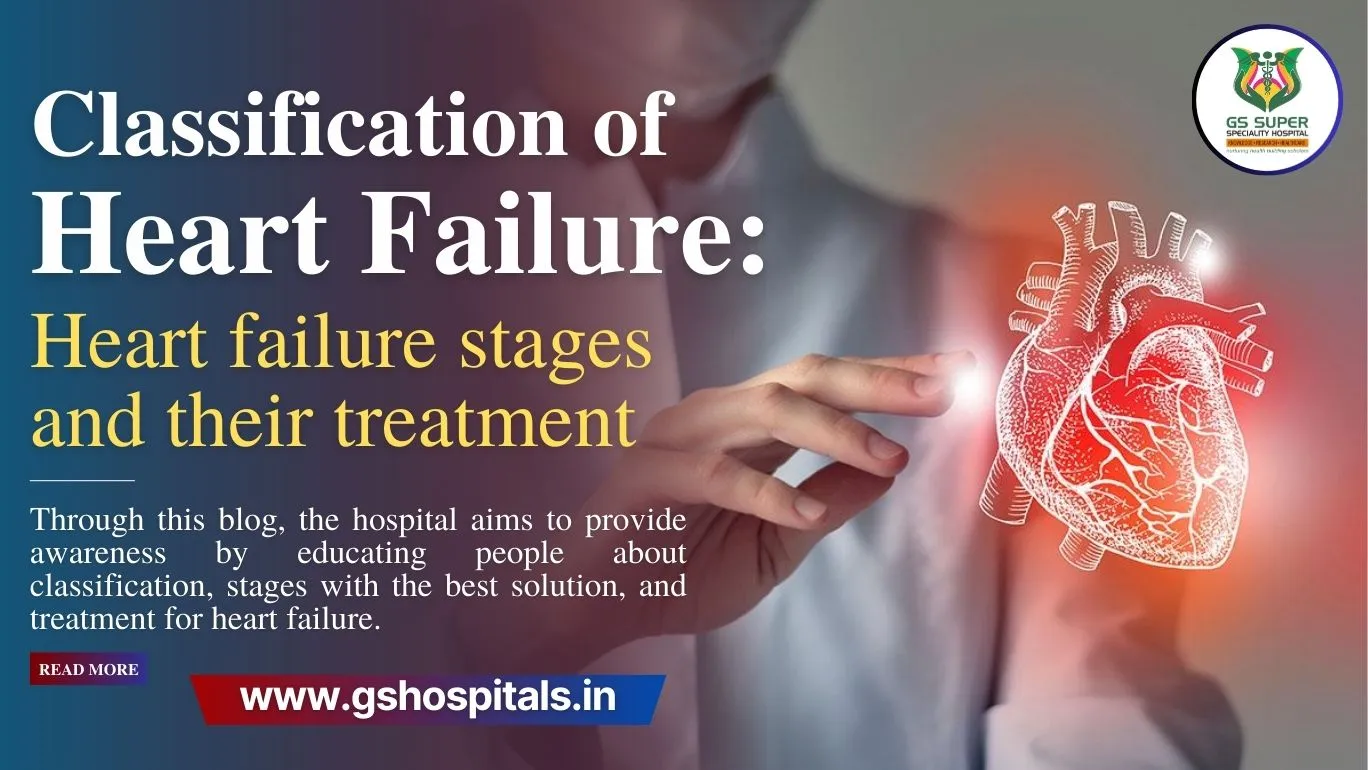Heart failure occurs when the heart is unable to perform its function. The heart is an important organ of our body which works 24/7. Yes, it's true! It does not stop at all and works even when we sleep. It is one of the precious parts of our body which supplies blood to all parts of the body.
In this context, GS Hospital, the top heart care hospital in UP has come forward to raise awareness about one such heart problem which is considered serious and fatal- Heart Failure. With heart attacks being on the rise these days, it is important to be aware of heart failure issues and take preventive steps to keep them at bay.
GS Hospital is the best heart care center in Meerut which has special expertise in treating heart problems under the guidance of the top cardiologists in India. Located in the heart of Delhi NCR, the hospital is known to be the top heart care hospital in Ghaziabad for its supreme health services to patients across the nation.
Through this blog, the hospital aims to provide awareness by educating people about classification, stages with the best solution, and treatment for heart failure.

In medical terms, heart failure is also known as congestive cardiac failure. This simply means failure of the heart to function effectively. As we all know, the main function of the heart is to pump blood to all parts of the body. Heart failure is a chronic condition that can cause major complications if ignored. It can affect the quality of life and interfere with daily activities.
It is important to diagnose a particular heart problem at an initial stage to prevent complications. Early detection is the key to recovery. Awareness is a must for early detection of heart problems. It is important to reach out to your doctor at the earliest, in case of any discomfort experienced about your health.
With this, let us give you some insights into the classification and stages of heart disease along with treatment and the best holistic solutions for a healthy heart.
In heart failure, the heart muscles become weak and are unable to carry out the function of pumping blood, oxygen, and nutrients to other organs and systems of the body. All the body organs and systems are dependent on the heart to work harmoniously for effective overall well-being. Here are some reasons why heart failure may occur.
There are two types of heart failure which are as follows:
Left-sided heart failure: This mainly occurs when the left chamber of the heart cannot pump and supply blood to other parts of the body. It causes depletion in supplying oxygen-rich blood to the body parts. It is mainly due to the following reasons:
Right-sided heart failure: This mainly occurs when the right chamber of the heart is unable to pump blood to the lungs causing a lack of oxygen-rich blood.
Both left and right-sided heart failure are interrelated to each other and can cause major stress on the heart resulting in heart failure.
Your cardiologist will run a detailed case analysis through symptoms and past medical history before finalizing diagnostic tests. In cases of emergency heart issues, the cardiologist may prescribe the diagnostic test post-check-up on an immediate basis. Here are some of the diagnostic tests for heart failure which are mainly considered.
The symptoms of heart failure are as follows:
Awareness about symptoms of heart failure is a must to ensure proper adequate timely measures are taken to avoid complications.
Heart failure is a chronic problem and has long-lasting effects on overall well-being. Detection of heart failure at an early stage is the key to prevention. There are four stages of heart failure:
Stage A: This is the first stage of heart failure when the patient is diagnosed with diabetes, hypertension, high cholesterol, metabolic syndrome, and obesity. These are considered high-risk factors for heart failure. The heart failure issue at this stage can be prevented by making lifestyle changes and medications. Stage A heart failure is considered a mildly symptomatic stage and can be diagnosed by your doctor.
Stage B: Stage B heart failure is considered an asymptomatic stage where there are no active symptoms. This suggests some hidden symptoms of heart failure which can be accidentally diagnosed with routine check-ups through ECG or ECHO. That's why, routine heart check-ups are a must with your doctor.
Stage C: Stage C is the third stage of cardiac failure characterized by visible symptoms such as shortness of breath, palpitations, and coughing. It is important to receive immediate medical attention at this stage for the prevention of complications in the future. The symptoms of heart failure can be confirmed with diagnostic tests specific to heart failure as recommended by the doctor.
Stage D: Stage D is the most advanced form of heart failure which needs medical and surgical intervention. The symptoms in this stage of heart failure are also very severe. Symptoms may initially start on activity and result in recurrent flare-ups and exacerbation at times.
Untreated cases of heart failure can cause complications leading to life-threatening problems affecting multiple systems of the body.
The complications of heart failure are as follows:
Your cardiologist will recommend the best treatment for heart failure to prevent worsening or further deterioration to allow recovery by relieving your symptoms.